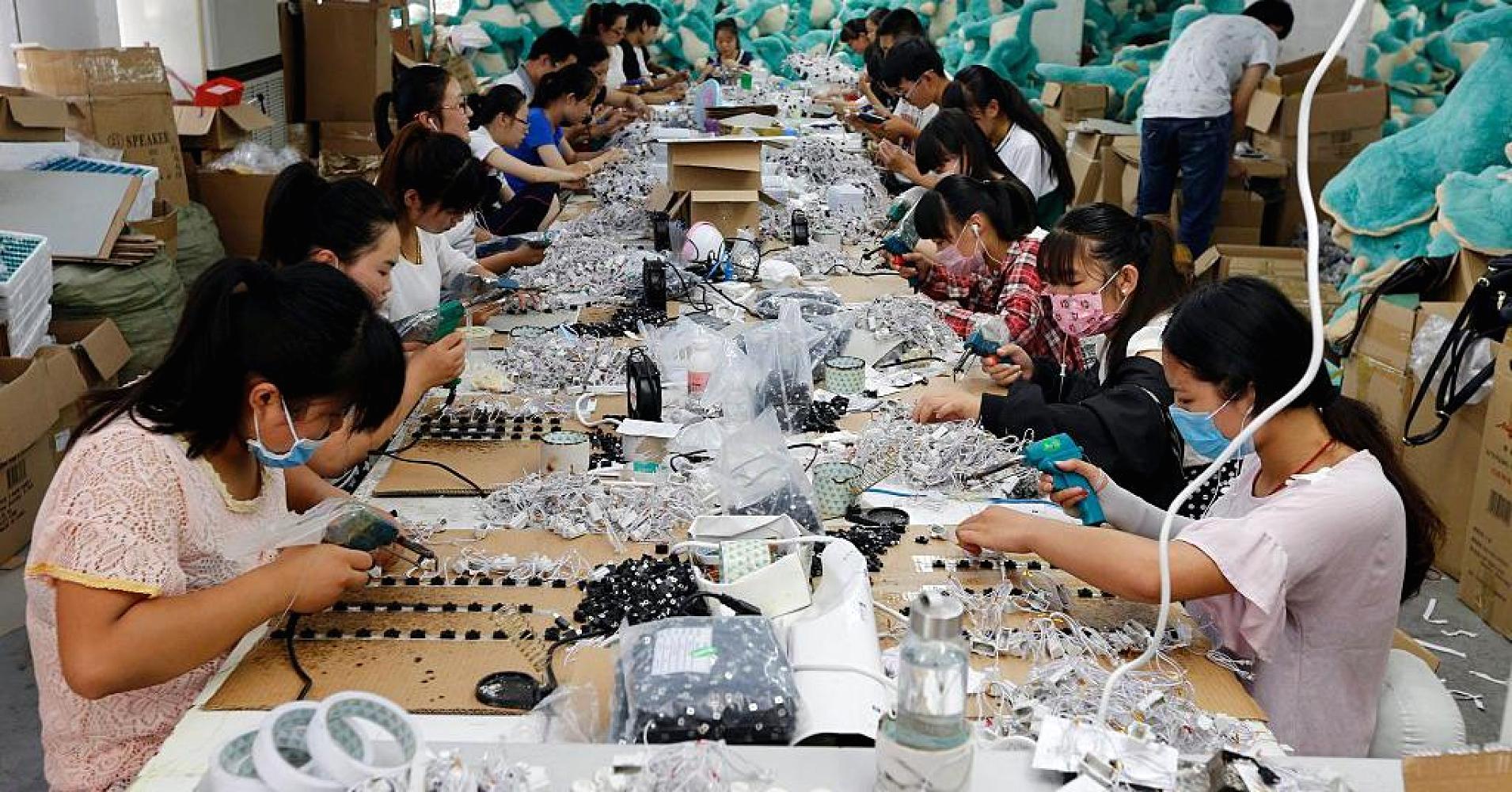
New York Times reports that China's unemployment rate has hit its lowest point in multiple years at 3.95 percent by the end of September, but employment still face challenges as the economy pushes ahead with structural reforms, China's labor ministry said on Sunday. The ministry of human resources and social security said in a statement that 10.97 million new jobs had been created in China from January to September this year, a growth of 300,000 compared with the previous year. The figure represents having essentially fulfilled the ministry's year-end target, the ministry said in a pre-prepared statement given to reporters. Despite being ahead of schedule, Yin Weimin, head of the ministry, told reporters that "raising the capacity to employ workers overall still faces large pressures." "We need to create 15 million jobs per year," Yin said, singling out China's more than 8 million new university graduates that enter the job market each year as one group in need of additional employment.
Fortune writes that Tesla has reached an agreement with the Chinese government in Shanghai to build a production facility in the city's free-trade zone, potentially giving the carmaker a unique edge in the world's largest market for electric vehicle. Details of the deal, as reported Sunday morning by the Wall Street Journal, are still being worked out. But it is the first of its kind for a foreign car manufacturer, and could drastically cut production costs for Teslas sold in China – and the deal is expected to exclude the kind of technology-sharing agreements that can deter innovative international companies from setting up shop there. Tesla has been pursuing a Chinese factory for years, and the Shanghai deal started to come into focus in June. That followed the announcements that Tesla sold $1 billion worth of cars in China in 2016, and that it had accepted a large investment from Tencent Holdings, a technology giant in China.
Financial Times writes that US defence secretary Jim Mattis will try to unite Southeast Asian countries against China during a meeting of defence ministers in the Philippines on Monday, as President Donald Trump prepares to send a strong message to challenge Beijing. The Association of Southeast Asian Nations has frequently been fragmented as the US and China jockey for influence. This has been magnified by a dispute over artificial islands in the South China Sea that China has built and equipped with military installations. At the same time the US has lost influence in the region after Mr Trump appeared to give his predecessor's "pivot to Asia" short shrift, cancelling a trade pact that the region had spent years working towards. "[Asean gives] voice to those who want relations between states to be based on respect, and not on predatory economics or on the size of militaries," Mr Mattis told reporters ahead of meetings in the Philippines, without mentioning China by name. "The United States remains unambiguously committed to supporting Asean."
- 2017-10-20 What We Learned on Day Three of China’s Party Congress
- 2017-10-19 What We Learned on Day Two of China's Communist Party Congress
- 2017-10-18 China Is Quietly Reshaping the World
- 2017-10-17 China's Communist Party is holding its most important meeting in years: Here's what you need to know
- 2017-10-16 China stands at 'a new historic starting point,' Communist Party says
- 2017-10-15 China's Pollution Crackdown Is Gaining Momentum
- 2017-10-13 China’s trade with North Korea slumps as nuclear sanctions finally start to bite
- 2017-10-12 Big twice-in-a-decade meeting in China may have a curious market impact
- 2017-10-11 China treats its foreign aid like a state secret. New research aims to reveal it.
- 2017-10-10 Chinese yuan strengthens in a sign of 'overriding stability' ahead of the key 19th Communist Party Congress
- Bloomberg What Default? China Growth Keeps Lid on Bond Failure Rate: Chart
- Bloomberg China Is Closing Illegal Steel Mills
- www.thestandard.com.hk China home sales set to slow
- New York Times A Showdown Brews Between Amazon and Alibaba, Far From Home
- TIME President Trump on North Korea: 'We're Prepared for Anything'
- Financial Times China lifts import ban on mouldy cheese after EU lobbying
- Wall Street Journal Tesla Strikes Deal With Shanghai to Build Factory in China
- Financial Times China business chiefs back Xi Jinping and party at congress
- Reuters China state planner to adjust state purchase price for grain
- Financial Times China lifts ban on Anbang sales of high-yield investment products
- Reuters Former US President Jimmy Carter says would travel to North Korea: NYT
- New York Times China Says Needs to Create Jobs for 15 Million People Every Year
- Forbes As Trump prepares for visit to Asia and China's Xi, US increasingly finds itself behind a wall
- The Telegraph Xi's party conference provides clues about China's dealmaking appetite
- The Hill Trump administration hoped for more progress from China: Bloomberg source
- Forbes What 'Xi Jinping Thought' Stands For
